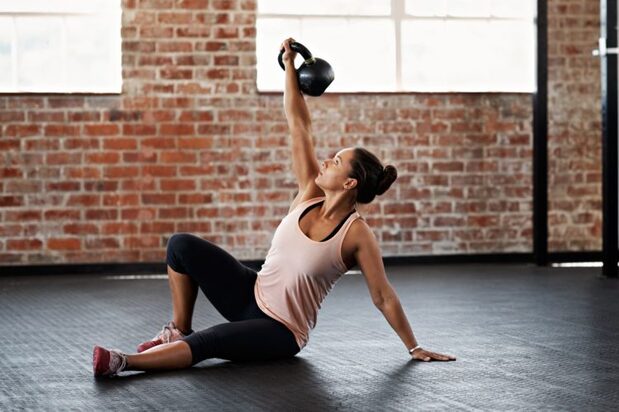|
SEARCH My Blog (Opens in new tab)
Plus, how to not carry your Xmas weight gain forwardAs we head towards Xmas, here are this week's 4 Most Valuable pieces of content that I found to help you live longer better. These four articles stood out to me this week are:
Vitamin D pills "could stop colds or flu" Last week I highlighted research which concluded that calcium and vitamin D tablets are not necessary for healthy adults. This article notes that Public Health England recommends Vitamin D supplements! Doing so could "spare more than three million people from cold or flu" in the UK each year, it says. Their conclusion is that taking low-dose Vitamin D tablets during winter and times when sun exposure is low is more effective than flu vaccinations. If true that is a very important finding, especially for us over 50s. Influenza strikes with increasing potency these days. We need to take precautions. My actions: Ensure sufficient Vitamin D during the flu season, and otherwise take low-dose supplements. Can't pull off a full Turkish Getup? Start here You may have seen people (people like me) doing a weird "get up off the ground kind of thingy" at gym. Most often with a kettlebell held in a vertically outstretched arm. In fact it is a "get up". And it is a little weird in the sense that it is a complex multi-functional exercise that requires focused practice. Few people persist with it, and so it becomes weird in the sense of "unusual". It's the best single all-round functional exercise for living longer better that you can do. It exercises your joints, your muscles, your balance and your brain in the one repetition (up and down). I've been doing the Turkish getup for twenty years. It's just a part of the continuous sequence of kettlebell exercises I do three times each week. I use a 16kg kettlebell and that is seriously challenging. The article shows you how to do the first movement in a four-part movement to fully get up from the floor. The instructions and video look safe to me - most don't. This is a great exercise to start at home. I recommend that you take a look. Your action: Read the article and try the getup with no weight, or a light weight. If you have no weights use a 1kg packet of rice to start. Do these for a month and you'll notice a difference in your overall body awareness. Yes, you can avoid weight-gain over the holidays With Xmas approaching we are all facing the challenge of balancing fun family and food on one hand, with the prospect of adding to our regrets about over-indulging. This Harvard Health article lays out "ten top tips" for weight management over the holiday season. The intervention tips were found to have reduced the weight gain of a study group, as compared to a control group. The latter was just given information on healthy living, which wasn't effective. Take a look and see how many of the tips you could wind into your festive plans. To me, it boils down to this - cut out the added sugar, keep your portion size modest, keep moving at home and go walking, and be conscious of the amount of exercise you are going to have to do to eventually burn off what you've eaten. Enjoy some big days, but don't make every day a big day. Bear this in mind - a study by Forza Supplements found that the average person eats up to 5,241 calories on 25 December, when snacks and alcohol are added in. Let's say that an average daily consumption is 1800 calories. That leaves 3441 to be exercised off, which will take you one hundred thousand steps. That's doable, added to your next 20 days of exercise. But it is not doable if you indulge like that every day. Our actions: Note the tips in the article. Keep in mind those one hundred thousand steps as we indulge, and keep up your most convenient form of daily exercise over Xmas. Interval training for runners - how to improve your stamina This article caught my attention because interval training is one of my four exercise pillars for living longer better. Although it has been popularised as "High Intensity Interval Training" that is merely a link-bait tautology. Interval training is, by definition, high intensity. Otherwise it would be called "Doing your normal exercise with lots of breaks". Professor Tabata from the Japanese National Institute of Fitness and Sports in Tokyo immortalised interval training with his 20 seconds on, 10 seconds rest method. Interval training builds stamina. Greater stamina helps you live longer better. For runners, having stamina means the ability to win races, whereas endurance capacity is simply the ability to finish races. If you like to run, and want to build your stamina, the article has a couple of good session suggestions. Building your stamina through running will help you build stamina in other forms of interval training, and vice-versa. Your actions: If you are a runner adopt the program and see how your stamina starts to build. Add in Fartlek training and you'll soon be dominating! Good luck. Follow me on Quora for more health and fitness tips. If you enjoyed this article >> Follow me Leave a comment >> Share it >> Stay healthy If you have any questions email me and I will get back to you. You might also enjoy these other popular blog posts:
Latest: get your free customised fitness plan designed uniquely for you.
|
ChoicesSince I was diagnosed at 50 with Type 2 diabetes I've been learning how to do bone-building fitness training which lowers my age. You can too. It's your choice. Walter Categories
All
Archives
May 2023
|

 RSS Feed
RSS Feed 


